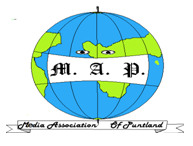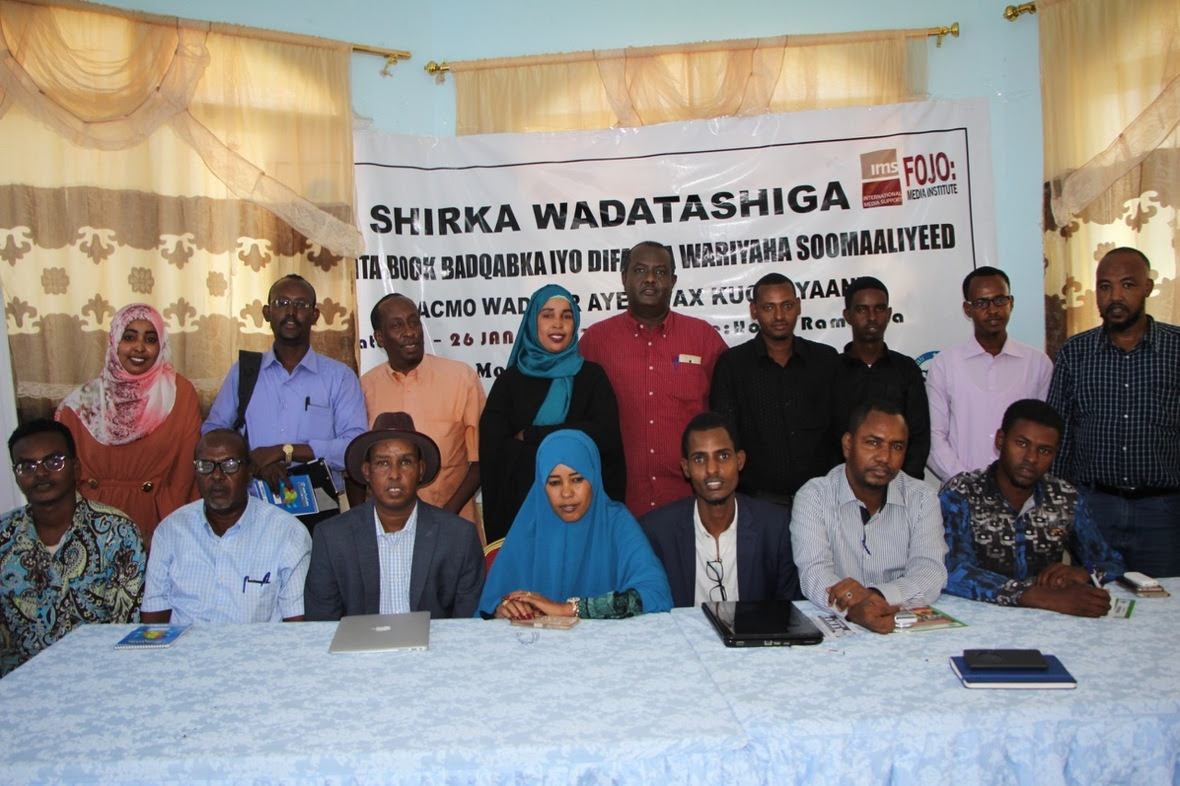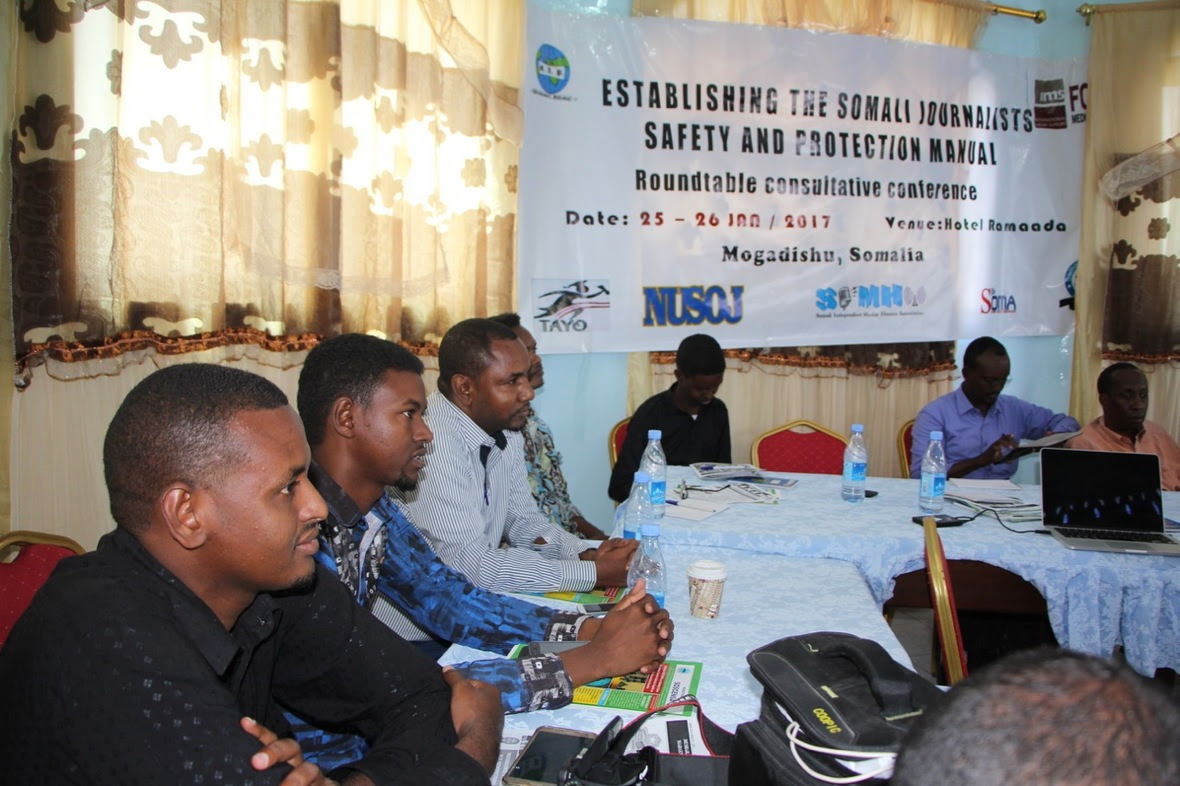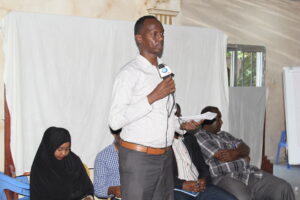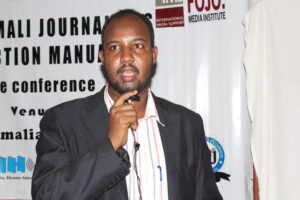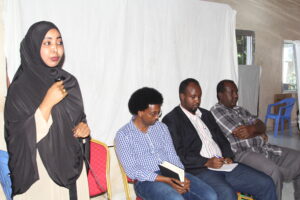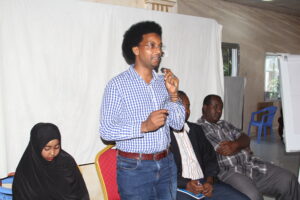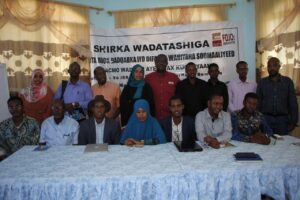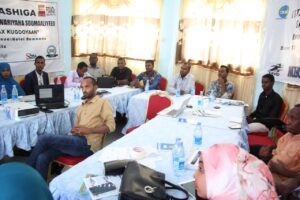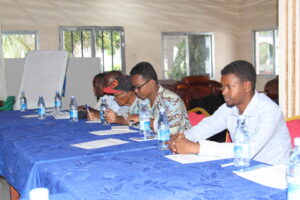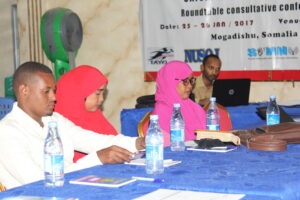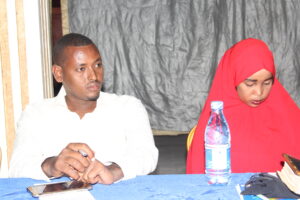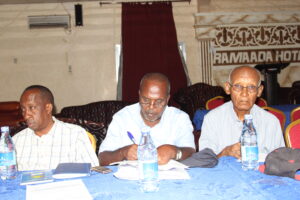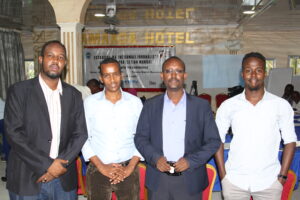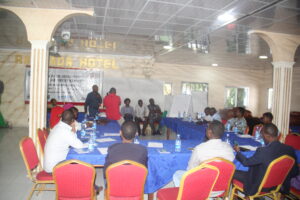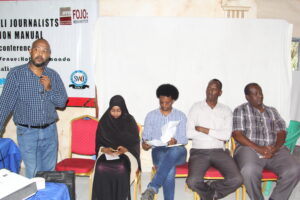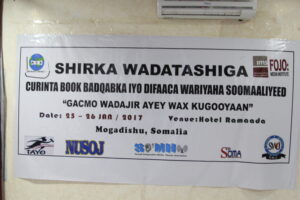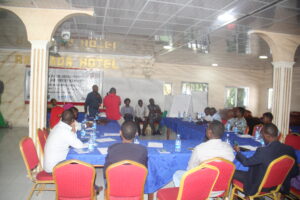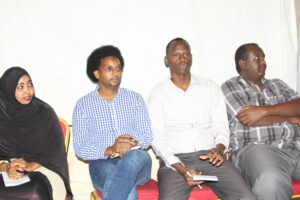‘’NOVEMBER 2016, with support from the international media support organizations IMS/FOJO the Media Association of Puntland (MAP) commissioned the TAYO Centre for Media Excellence to conduct a desk review study to provide a snapshot of the safety and protection Journalists of digital security strategies by the media community in Somalia. This desk review study was a multi-stakeholder approach and was the invention of the safety system supported by the IMS/FOJO partnership, the study targeted six high risk zones, including Mogadishu, the capital of the country, Kismayo, Baidoa, Beledweyne, Galkaio and Bosaso. During the weeks-long desk review which was guided by the UNESCO’s Journalist safety indicators, all the major stakeholders in the Somali media landscape, ranging from media owners, management, journalists and other key actors were involved. A perilous finding the study exposes is that media houses stationed at the six locations targeted had no safety policies and or protection measures set to safeguard the journalists’’. ** |
|
Mogadishu. 27th, Jan 2017: A Roundtable meeting was held under IMS/FOJO auspices on 25th and 26th January, 2017 at Ramada Hotel Conference in Mogadishu, on the theme of establishing the Somalia Journalist safety manual. The two-day event was attended by the IMS/FOJO established safety committee members – SOMA, SIMHA, SWJ. In addition, 12 journalists drawn from the marked 6-high risk zones of Bosaso, Galkaio, Beletweyne, Baidoa, Mogadishu and Kismayo. The Round Table was also attended by numerous veteran journalists and the NUSOJ secretariat. In his opening speech,MAP chair expressed the association’s gratitude for the support it received from journalists, and the collaborating organisations both at the state level and at the capital. He gave a summary of the objectives of the roundtable and its expectations while calling for the participants for their active participation. The purpose of the Round Table was to examine the draft desk review report that measured the safety and protection of Journalists targeting Galkaio, Bosaso, Beletweyne, Baidoa, Mogadishu and Kismayo. This Desk review was carried out in November 2016. The MAP, vital to its expected role, endeavored to restrict the debate to the review of the report and discussions based on the contents of the Somali Safety and Protection Manual. |
“We welcome the plan to create the safety and protection manual of journalists which is a much needed manual, I would also like laud MAP for bringing in an all-inclusive participation of media practitioners in one venue drawn from the different regions of Somalia – an approach for the first time eager to discuss on how to improve our journalist’s safety and protection in Somalia, said SOMA Chairman Mohamed Abdullahi Koshin |
The Somalia programme Coordinator of Fojo/IMS, Abukar Albadri in his inaugural speech gave an overview of the IMS/FOJO partnership in the Somali media development agenda, while speaking on the background of the IMS/FOJO partnership and their relations with local partners Albadri noted; adding to that IMS/FOJO program put forward improvement to the safety of Somali journalist. |
At the closing of the two-day meeting, a nine-member editorial committee was voluntarily selected amongst the participating members, this volunteers will be the Somali Safety and protection manual members contributing in drafting and reviewing the much need manual. MAP will continue to lead this activity in drafting the manual and at a later stage will invite the media stakeholders in a conference that will be held in Garowe and will seek to endorse the final Draft of this Manual. The Manual will also seek a final approval from the supporting donors IMS/FOJO prior to publishing or printout of the final draft for official use. |
|
Journalism is one of the riskiest professions in Somalia. The country has consistently been rated one of the most dangerous places in the world for journalists. The Somali media remains challenged by censorship, intimidation, harassment, unlawful detention, imprisonment and mysterious assassinations bearing the hallmarks of extremism and political instigation. Many journalists, reporters and other media staff fled to neighboring countries leaving the sector with considerable human resource challenges. These high personal risks discontinued experienced journalists from active practice in Somalia. The sector attracts, only, low skilled labor due to the low wages and the dangerous repercussions. Although, some initiatives have been developed over the years for increasing the safety for journalist, there are no existing system that continuously cater for their safety. Early in 2016, IMS and Fojo have discussed this situation with media associations in Somalia and have jointly developed the proposal for a comprehensive safety system that seeks to prevent journalists exposing themselves to risk themselves as well as responds to the needs of journalists who are under threat or otherwise have been exposed. The safety system is developed jointly based on a joint risk assessment and the development of an adequate strategy. Best practices from other countries, such as Afghanistan, Colombia and Kenya have been taken into consideration. The attention to the safety of journalists is in line with the priorities of the Federal Media Support Strategy, which was finalized in the beginning of 2016 based a multi-stakeholder consultative process. END |
